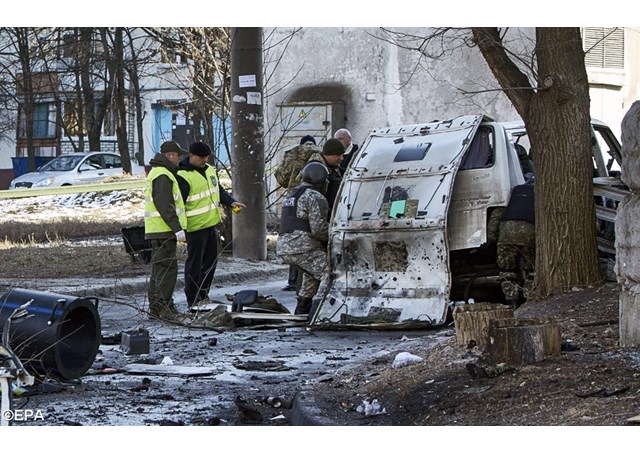
Russia, Germany urge OSCE to double monitors

(Vatican Radio) In a rare sign of unity on the issue, Germany and Russia have urged Europe's security organization, the OSCE, to double its number of observers in eastern Ukraine to monitor a fragile truce between government forces and Russian-backed separatists.
Their appeal comes amid a debate over whether to send weapons to Ukraine's army while other countries, including Lithuania, fear an armed confrontation with Russia.
Listen to the report by Stefan Bos:
Russian Foreign Minister Sergei Lavrov and his German counterpart Frank-Walter Steinmeier agreed that it was time to "ramp up" the OSCE mission in eastern Ukraine to at least 1,000 monitors.
Yet the security organization says it is already struggling to gain access to all areas of the war-torn region, amid ongoing violations of a ceasefire agreed in Minsk Belarus.
Video footage of a recent bombing in the eastern city of Kharkiv, which lies outside the conflict zone, has raised fears that other areas may be destabilized by the fighting, which erupted last April.
Additionally, Ukrainian Deputy Foreign Minister Nataliya Galibarenko said she is concerned about massive Russian military exercises near Ukraine's border and that thousands of Russian troops have allegedly entered her country.
PERMANENT PROCESS
"We have a permanent process of penetrating and rotating their troops on our border and through the zone of contact. So this a permanent process," she said.
The minister suggested Russia is having more troops in the area than they want to acknowledge when speaking about their "political will" regarding the Minsk peace agreement.
"On certain places we register their withdrawal, but on certain places they are in fact reinforcing their presence," she said.
She said several countries are considering Ukraine's request for defensive weapons. But the European Union's foreign policy chief Federica Mogherini has already said she is against a bipartisan call in the United States to provide lethal aid; she said the EU is doing enough.
Whatever the outcome of that debate, several countries bordering Russia fear what they view as Moscow's aggression.
Lithuanian President Dalia Grybauskaite told the BBC her country is reintroducing conscription in response to the threat, as her nation was "already being attacked" with "propaganda" and cyber-attacks.
She said her nation needs to be able to protect itself as it is on the "frontier". She claimed neighbouring Russia is involved in "threats and exercises practically every day".
Lithuania is a member of NATO, which as expressed concern that the conflict in eastern Ukraine could further destabilize Europe, after already claiming some 6,000 lives.
| All the contents on this site are copyrighted ©. |


